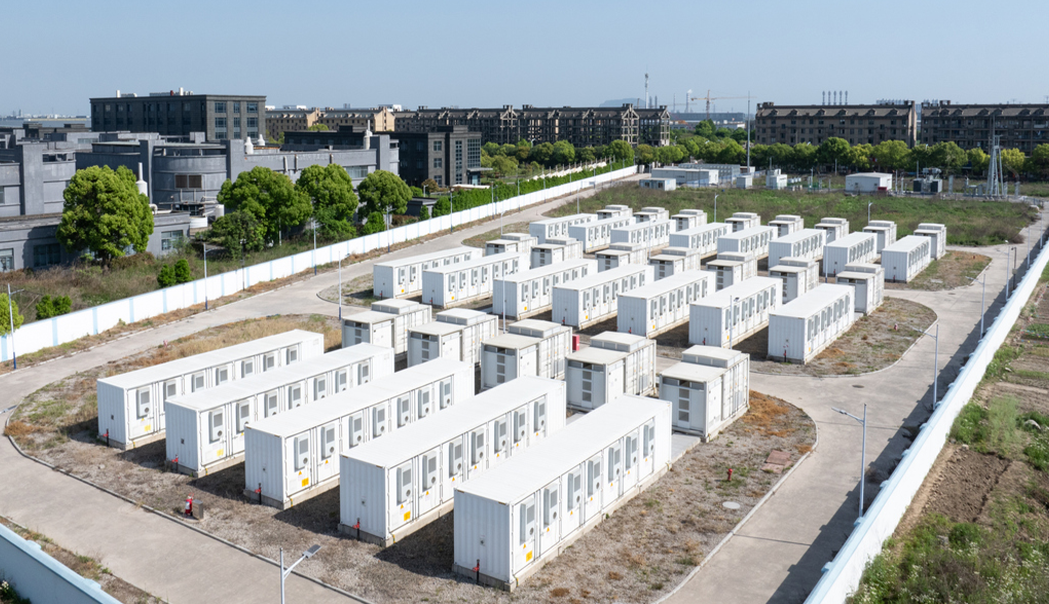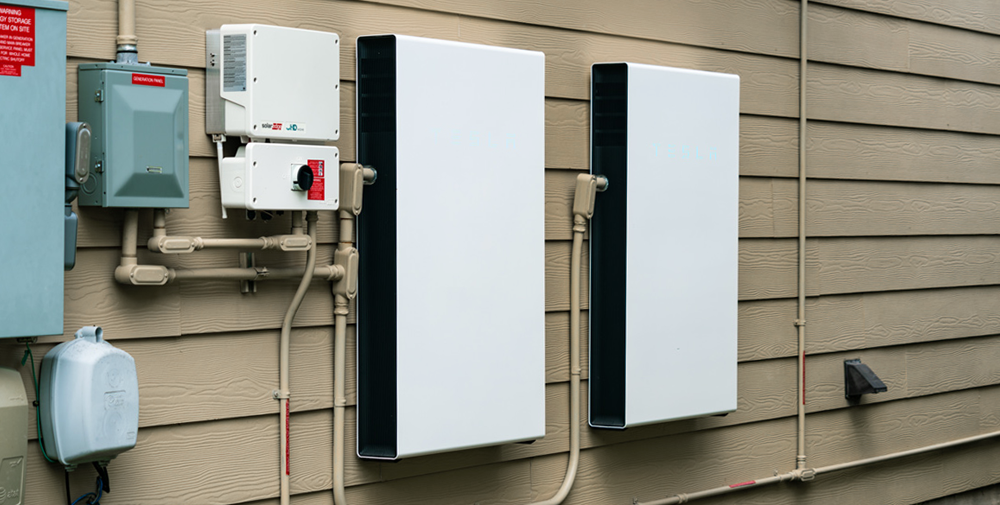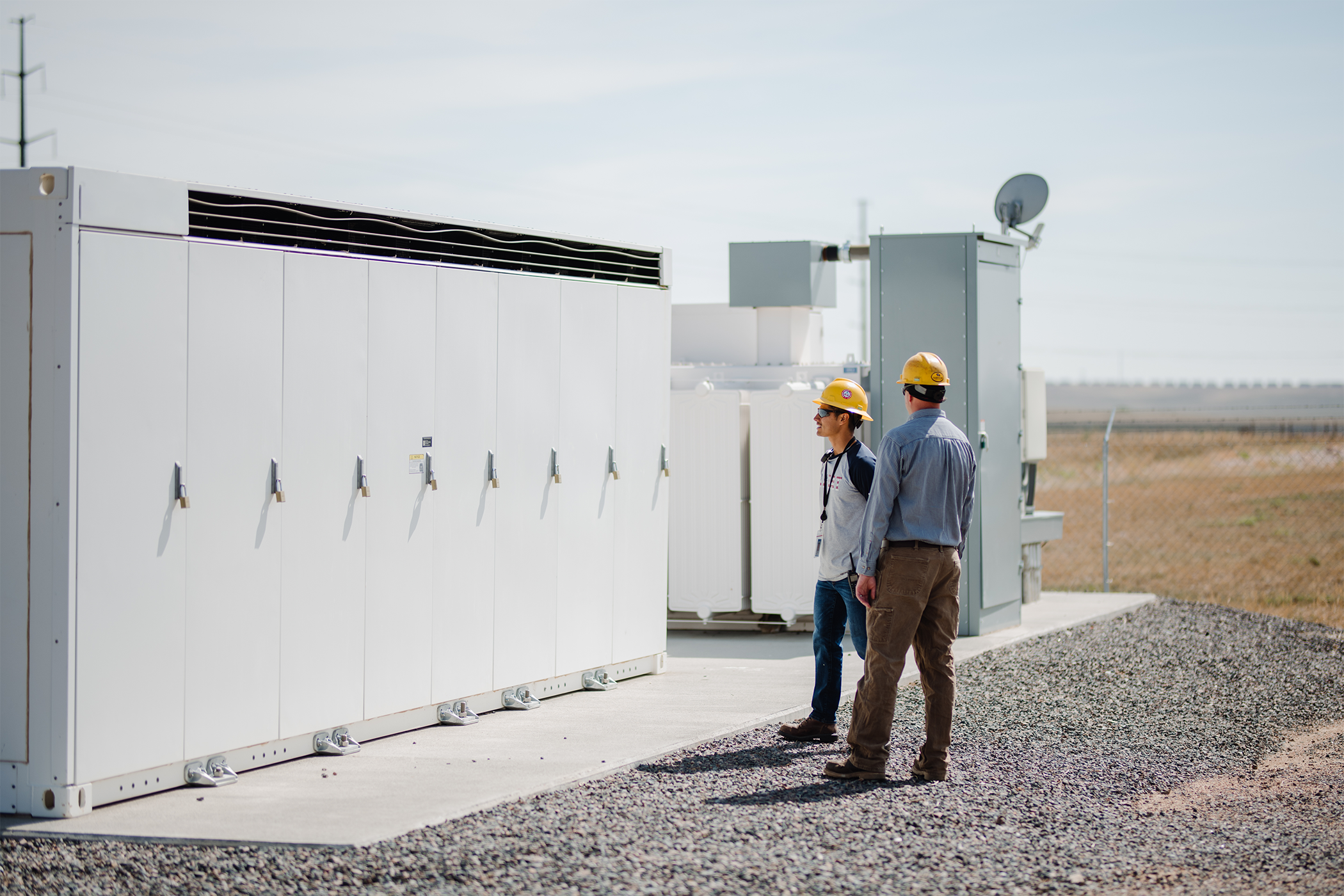What is battery storage?
Energy storage is the process of capturing and holding energy in a form that can be used at a later time. It’s essentially the ability to store energy produced at one time for use at another. Energy storage systems are commonly referred to as battery energy storage systems (BESS) and can provide backup power during times when it’s most beneficial, such as peak demand periods or when solar generation is low. When combined with solar, BESS allow for the use of excess solar generation beyond times of sunlight.

What are the benefits of battery storage?
Energy storage systems can help reduce energy costs, under some rate structures, by storing excess solar energy for later use, support grid stability by managing energy loads and lower your carbon footprint. They also enhance energy independence by giving you more control over how and when you use electricity.

Explore how energy storage can meet your power needs
Battery energy storage systems (BESS) help you manage your energy use more effectively. By storing energy when it’s abundant and using it when demand or costs are higher, you can optimize your energy consumption. When paired with solar, storage can extend the value of solar energy by shifting its use to times when sunlight isn’t available, potentially increasing savings, sustainability and reliability.

Energy storage: finding the right size for your needs
Sizing a battery energy storage system involves determining your energy consumption and goals. Here's a step-by-step approach:
Evaluate your energy needs
Calculate average daily energy usage via electricity bills or through an energy monitoring system.
Define your energy goals
Decide whether your focus is on cost savings, maximizing solar use, or increasing energy reliability.
Consider peak demand
Be sure the system can handle your needs during peak loads, which is the period of highest power usage.
Consult with a professional
Work with an energy consultant or use online tools to help you size the system correctly for your needs.
How battery storage supports renewable energy

Renewable energy sources such as solar and wind are nondispatchable forms of generation. Nondispatchable means they cannot be controlled to provide the output needed to reliably serve customers’ electric consumption. Rather, their output is determined by the availability of the sun and wind. As customers add solar and as Platte River adds solar and wind, there will be many times that available renewable generation exceeds consumption and many times that it falls short. Surplus renewable energy can be sold, but the revenue may not be favorable if other utilities also have too much renewables. And a renewable deficit can be covered by relying on dispatchable forms of generation, which may come at a cost or may result in greenhouse gas emissions. Battery storage provides a constructive solution to this issue. Batteries store surplus energy generated during peak sunlight or wind periods and discharge it during low generation or high demand, thereby contributing to the reliability and financial sustainability of the electricity grid. Customers with storage that are willing to enroll it in a future VPP can provide storage that is essential to decarbonizing the electric system and may be compensated for the value their storage provides to the system. Learn more about Platte River’s battery storage projects.
Energy storage resources
Internal Revenue Service (IRS)
Information on the Residential Battery Storage Technology Tax Credit, which provides a tax credit for homeowners investing in battery storage technology.
Internal Revenue Service (IRS) – Commercial
Information on Clean Energy Tax Incentives for Businesses, which provides several tax credits for businesses investing in clean energy projects. Visit IRS.gov/CleanEnergy for more information.
City of Fort Collins
Provides information on the city’s residential battery storage program, financing information and more.
Colorado Energy Office
Information about the BESS study conducted by the Transporation and Fuel Technology Team.

Frequently asked questions

What are the benefits of installing an energy storage system?
Energy storage systems can help reduce energy costs by storing excess solar energy and support grid stability by managing energy loads. They also offer greater control over your energy use and can support your efforts of lowering your carbon footprint.

Are there incentives available for energy storage in Colorado?
Yes, Colorado offers state incentives for energy storage installations through the Department of Revenue. Additionally, programs like the Fort Collins Utilities Residential Battery Storage Program provide specific incentives to help offset costs.
In addition, Platte River and the owner communities are working to develop a virtual power plant (VPP). Once established, compatible storage systems may be able to enroll in the VPP, which will support Platte River’s transition to a noncarbon electric system and provide the customer with additional financial benefits.

How do I determine the right size for my energy storage system?
The right size depends on your energy usage, goals and budget. Some solar providers offer battery bank calculators, which can help you determine the best system size for your home or business.

Can businesses in Colorado benefit from energy storage systems?
Absolutely. Businesses can reduce operational costs, improve energy resilience and enhance sustainability by integrating energy storage systems.

What maintenance is required for energy storage systems?
Energy storage systems typically require minimal maintenance, such as occasional inspections and ensuring proper battery health. Most systems come with warranties that cover maintenance for 10-20 years. Contact a qualified installer for more information.

